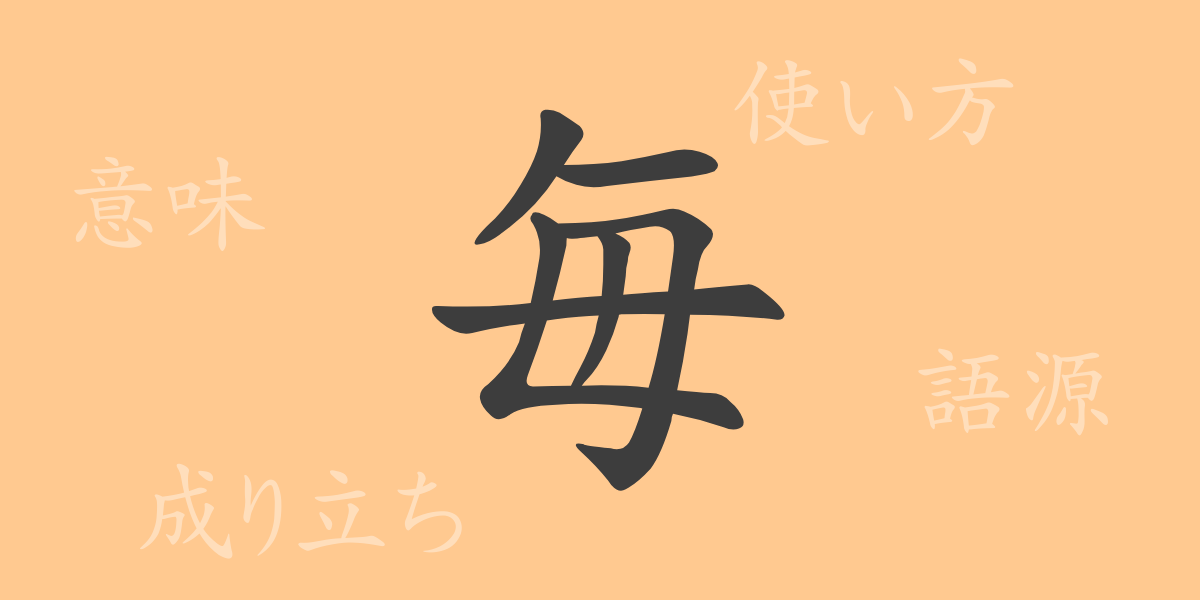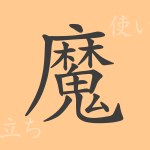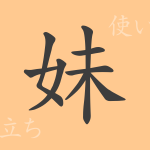In written Japanese, kanji (Chinese characters) play a crucial role in conveying information concisely. Among them, the 常用漢字 (じょうようかんじ, jōyō kanji) “毎” (まい, mai) is deeply rooted in our daily lives and is used in various contexts. This article delves into the origins, meanings, usages, as well as idioms and proverbs featuring “毎” (まい, mai), showcasing its charm.
Origins of 毎 (まい, mai)
The kanji “毎” (まい, mai) evolved from an ancient Chinese pictogram that signified “a mother giving birth to a child.” Originally, it combined the character for “mother” (母, はは, haha) with a similar character to emphasize the presence of “mother.” Over time, its meaning shifted to represent repetition, as seen in words like “毎回” (まいかい, maikai, every time) and “毎日” (まいにち, mainichi, every day).
Meaning and Usage of 毎 (まい, mai)
“毎” (まい, mai) is used to indicate repetition or cycles in expressions like “毎回” (まいかい, maikai, every time), “毎日” (まいにち, mainichi, every day), and “毎年” (まいねん/まいとし, mainen/maitoshi, every year). It signifies something that occurs regularly or habitually and is one of the most frequently used kanji in Japanese. Additionally, this kanji is employed to describe events that happen continuously without specifying exact numbers or times.
Reading, Stroke Count, and Radical of 毎 (まい, mai)
Given its frequent use, knowing the readings, stroke count, and radical of “毎” (まい, mai) is quite handy.
- Reading: The onyomi (音読み, おんよみ, Chinese reading) is “マイ” (まい, mai), and there is no kunyomi (訓読み, くんよみ, Japanese reading).
- Stroke Count: It has a total of 6 strokes.
- Radical: The radical is “毋” (なかれ, nakare), though it is often remembered as part of “母” (はは, haha, mother).
Idioms, Phrases, and Proverbs Featuring 毎 (まい, mai)
There are numerous idioms, phrases, and proverbs in Japanese that include “毎” (まい, mai). Here are a few examples:
- 毎日 (まいにち, mainichi): Every day, daily.
- 毎年 (まいねん/まいとし, mainen/maitoshi): Every year, annually.
- 毎度 (まいど, maido): Frequently, often; also used as a greeting in the Kansai region.
- 毎回 (まいかい, maikai): Every time, each time.
- 毎朝 (まいあさ, maiasa): Every morning.
These idioms and phrases are frequently used in daily conversations and business settings, making them very useful to remember.
Conclusion on 毎 (まい, mai)
The kanji “毎” (まい, mai) supports communication in Japanese with its simplicity and rich expressiveness. Essential for indicating repetition and periodicity, this kanji is closely tied to the lives of Japanese people, as evidenced by its high usage frequency. We hope this article helps you gain a deeper understanding of “毎” (まい, mai) and enhances your daily use of language.

























